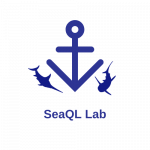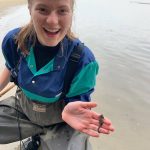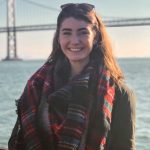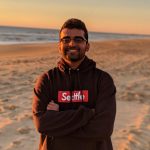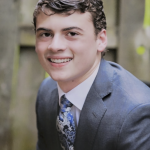Meet the Team
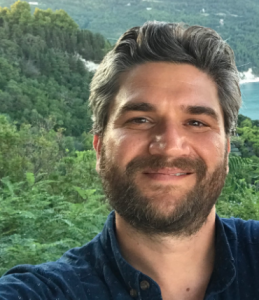
Francesco Ferretti
Assistant Professor
I am a quantitative and computational marine ecologist specialized in research synthesis. My scientific work is on marine conservation, fishery sciences, population dynamics, and quantitative ecology with a special interest in sharks and rays. I combine ecology, statistical modeling, and data science to approach questions on animal abundance and distribution, species interactions, large marine predators, top-down control, structure and function of large marine ecosystems.
I am interested in characterizing the history of human impact in the ocean, understand how this impact has altered marine ecosystems, and develop solutions for a sustainable use of marine resources. My research spans from macro-ecology to applied management and conservation. It focuses on dynamics from single species to whole ecosystems, and revolves around three main scientific approaches: 1) inferring ecological processes from limited and disparate data; 2) filling the data gap characterizing many ecological systems by exploiting unconventional sources of information; and 3) using data science methods, big data, and new technology to address pressing ecological issues and develop ocean solutions.
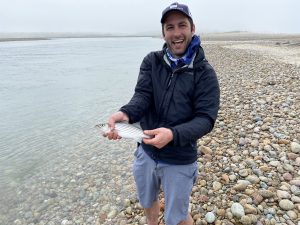
Brendan Shea
PhD Student
I am a marine biologist and conservationist working to inform the conservation of large marine predators, in particular sharks. My research interests can generally be grouped into the following categories: 1) the ecological role of sharks, with a focus on predator-prey dynamics, risk effects, and deep-sea habitat use; 2) the ecosystem consequences that result from removing large sharks; and 3) marine protected areas and their potential benefit for global shark populations. My approach uses big data and environmental synthesis in conjunction with field research techniques, including acoustic and satellite telemetry, biologging, baited remote underwater videos (BRUVs) and physiology, to consider fieldwork-derived mechanistic findings across broader scales.
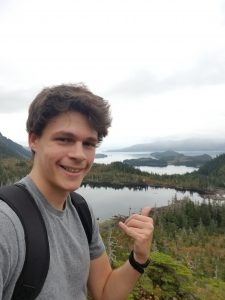
Jeremy Jenrette
PhD Student
I am a biochemist and data scientist who is interested in computer vision, citizen science, and molecular biology. Currently, I am developing automated detection and species classification algorithms for processing underwater footage of sharks and rays. I am also developing Environmental DNA (eDNA) techniques in the Mediterranean Sea to detect the critically endangered white shark. With sharkPulse, I data mine social media and online archives to track and warehouse global observations of sharks to increase data-informed conservation.
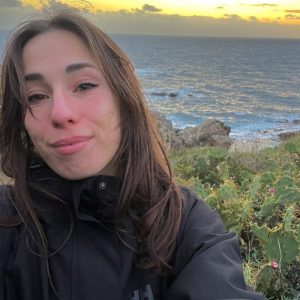
Chiara Gambardella
PhD Student
I am a PhD student at UNIVPM with a project co-funded with Stazione Zoologica Anton Dohrn and in collaboration with Virgina Tech.
My research interests are on marine conservation, quantitative ecology and innovative fieldwork techniques, with a focus on large pelagic elasmobranchs. My current PhD project has the aim to advance knowledge on the distribution of two important apex predators of the Mediterranean Sea: the white shark and the mako.
I am interested in field techniques such as stereo and mono-BRUVs: I have worked on their development, calibration and use to gain valuable information about presence, behavior and population size of multiple species. During my PhD I will also focus in deepening my knowledge on eDNA, which is a powerful tool to monitor elusive species such as large predators. Moreover, I have a keen interest in involving people in marine conservation through the managing of the social media platforms of “sharkPulse Italia” and also interviewing fishermen to collect information on the distribution of sharks
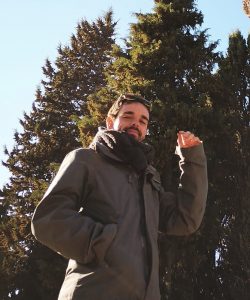
Filippo Bargnesi
Alumn
I have a Ph.D. in “Marine ecology and biology” obtained at the Marche Polytechnic University (Ancona, Italy). My Ph.D. has been co-funded by the Cattolica Aquarium (Cattolica, RN, Italy), and I have background experience in the husbandry of sharks and tropical marine fauna. My research activity is focused on shark conservation in the Mediterranean Sea. Shark populations in the area are facing a decline in terms of abundance and changes in their distribution due to human impact. Data collection and analysis is mandatory to monitor the situation and act properly. In that view, I use both historical ecology and genetics, and citizen science as tools for supporting data collection and making analysis.
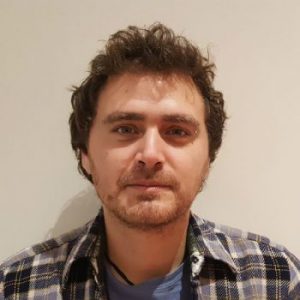
Stefano Moro
PhD Student
At the moment I am a Ph.D. student in Marine Ecology at the Sapienza University of Rome and a research fellow at the Stazione Zoologica Anton Dohrn. I am interested in investigating species’ spatial distribution, abundance trends, and fisheries sciences questions to promote management and conservation. My research focuses principally on sharks but also ranges from teleosts to marine mammals. In the last four years, I mainly focused on analyzing the sharks’ presence within the Mediterranean Sea, estimating for the first time the Spatio-temporal pattern of abundance and distribution of the Mediterranean great white shark.

Emma Gee
Alumn
I am currently an Illegal Fishing & Transparency Fellow at Oceana. I completed my undergraduate and Master’s degrees at Stanford in Environmental Systems Engineering and Earth Systems, respectively. As a Master’s student, I was mentored by Dr. Ferretti in my thesis using statistical modeling to establish historical baselines for sharks in the Indian Ocean. We are working towards using this historical data to reconstruct changes in shark community composition as well. My current research interests center around highly migratory pelagic fishes and the effects of distant water fishing on these species.
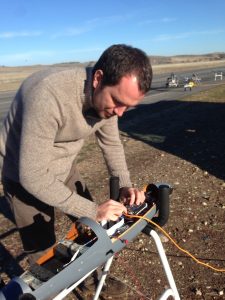
Simone Chesi
Research Associate, Aerospace Engineer
I am a passionate engineer & researcher with experience in self driving cars, drones and spacecraft. My mission is to explain complex engineering concepts with simple hands-on examples. I obtained my Ph.D and M.Sc. degrees in Applied Mathematics and Statistics from the University of California Santa Cruz, with focus on attitude control and stabilization for small satellites. I also received the M.Sc. degree with highest honors in Astronautical and Aerospace Engineering from the Sapienza University of Rome and the B.Sc. degree in Aerospace Engineering from “Politecnico di Milano” in Italy. In 2015 I received the prestigious US National Academy of Science Engineering and Medicine award for the development of autonomous guidance systems for swarm of ultra-long-endurance UAVs for reconnaissance missions.
I worked on several different projects ranging from UAVs, ground robots and satellites in the US, UK, and Germany for companies, government agencies, and universities such as Clyde Space, Planet, European Space Agency, Naval Postgraduate School, and UCSC. Furthermore, I developed and tested control algorithms in space on 100+ small satellites. I also worked on the development of autonomous driving algorithms and methods for Lucid Motors and after that I joined MAXAR Technologies to work on the development of Earth and Moon orbiting spacecraft. I published several journals and research papers. I am member of the American Institute of Aeronautics and Astronautics and review editor for the journal Frontiers in Astronomy and Space Science.
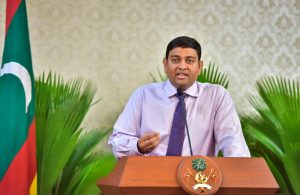
Dr. Mohamed Shainee
Research Associate
Dr. Mohamed Shainee is interested in applying his diverse academic and policy background to Ocean Conservation, Marine Technology, and Fisheries Managemen. He has a BEng. (Hons) in Marine Technology from the University of Plymouth (UK), a Master’s Degree in Marine Management from Dalhousie University (Canada), a MSc. in Marine Technology and a PhD Doctorate in offshore aquaculture cage designing, both from Norwegian University of Science and Technology (NTNU – Trondheim, Norway). Dr. Shainee also served a full 5-year term as the Minister of Fisheries and Agriculture in the Maldives from November 2013 to November 2018.
Dr. Mohamed Shainee has also worked as a national and international consultant in coastal, environmental, and ocean engineering projects. His latest international consultancy was designing and dimensioning an offshore aquaculture cage grid system in Seribu Islands, Indonesia. As an environmental consultant, Dr. Shainee has conducted over 20 Environmental Impact Assessments (EIA) for coastal development and infrastructure projects in the Maldives.
